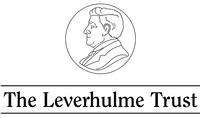The Leverhulme Trust funded two of our projects led by Prof. Kirk Martinez (Electronics and Computer Science) and Prof Jane K. Hart (Geography). 2010-13 further developed the wireless probes to understand glacial processes at Skalafellsjökull, Iceland. 2022-24 is current research on GNSS ice-trackers to measure glacier speed, together with remote sensing.
The recent Intergovernmental Panel on Climate Change (IPCC) failed to predict the recent dramatic break-up of the Greenland ice sheet. One of the contributing factors is that basal boundary conditions of glaciers remain one of the key uncertainties in modelling glaciers and ice sheets. Until recently it was assumed that glaciers flowed slowly and continuously, but there is a growing body of evidence that glacier movement can be episodic, and can be modelled in a similar way to earth-quakes as stick-slip motion.
In the first project we used an accurate (differential) GPS and sensors on the glacier surface to measure the “slip” and use an improved version of the multisensor Glacsweb probes within the ice and till (glacial sediment) to measure the “stick” phase.
The Leverhulme Trust was established in 1925 under the Will of the First Viscount Leverhulme with the instruction that its resources should be used to support “scholarships for the purposes of research and education.” We are honoured to be sponsored by the Trust and have used the funding to advance the science as well as boost our education activities.

